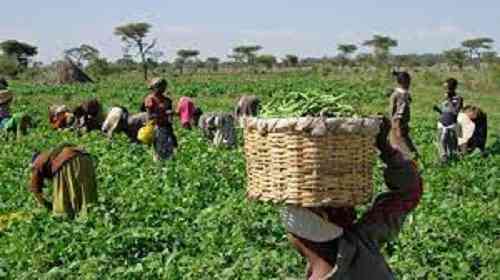
Following the increasing post-harvest losses suffered on the continent, experts have expressed the need for national governments to adopt strategies that would reduce the losses with emphasis on effective policies and technology-driven interventions.
This was the conclusions of experts at AATF fifth webinar series with the theme ‘Accelerating access to post-harvest management technologies for enhanced food security and trade in Africa’
The AATF director of programme development and commercialization, Dr. Emmanuel Okogbenin, in a presentation noted that investments were required in Post-Harvest Management (PHM) to transform the food systems in alignment with the challenges of smallholder farmers in Africa.
Okogbenin, therefore, suggested an integrated post-harvest management system that combines the best of technologies to reduce cost and maximize returns like “selling technologies at discounted prices for farmers to try at home and see the value in purchasing and setting up demonstration trials for PHM technologies and the resulting harvest and impact.”
According to him, five per cent of investments in agricultural research over the past 30 years has been directed toward preventing post-harvest losses, a situation that needs urgent improvement if the continent is to attain food security.
The CAADP Pillar II Adviser at the African Union Commission, Dr. Komla Bissi, in his contribution, noted that post-harvest loss is not unique to Africa as 1.3 billion metric tons of food representing about 30 per cent of global food produced is lost every year to post-harvest related issues.
Bissi who spoke on ‘Creating an enabling environment for efficient post-harvest management to facilitate regional trade in the context of AfCFTA: The role of regional bodies’ said Africa was losing 100 million metric tons of food every year which is equivalent to $4 billion. These losses have the potentials of meeting the food need and requirement of about 44 million people annually, he pointed out.
He said efforts must be scaled up to ensure that the growing disparities between food production and losses were addressed if the continent must attain food security.
He cited the Malabo Declaration of the African Union which African governments signed to eradicate hunger and food waste as a reference for governments to intensify action on addressing issues related to post-harvest losses.
“There is the need to improve systemic capacities of national institutions across the continent. At the AU level, we are already working with national governments to develop strategies on how to reduce these losses but there is need for the involvement of the private sector players as we strive to explore options to attract and increase finances to address this critical area,” he added.
The regional director, Eastern and Southern Africa region, World Vegetable Center, Dr. Gabriel Rugalema, said that eliminating post harvest losses was an imperative for social, economic, environmental and food security reasons.
Rugalema noted that the use of off-the-shelf technologies and practices to reduce PHL existed and were accessible but added that political will was urgently needed to support scale up and wide adoption of such technologies.
Rugalema who spoke on ‘Private sector participation in post-harvest management: Access to technologies and emerging opportunities’ said in Africa all crops suffer from post-harvest losses more than any other continent. “Horticultural crops (vegetables, fruits, herbs and spices) are delicate and vulnerable to fast post-harvest deterioration,” he said.
He listed lack of post-harvest processing technologies, poor road infrastructure, and unreliable markets as some of the main causes of post harvest losses.
He said he believed there was no shortage of technologies to reduce or even eliminate post-harvest losses but added that what was lacking was scale up access to meet the growing demand.
“There is a wide variety of technologies – simple (direct sun-drying), intermediate (use of solar energy or small electrical equipment), industrial (medium and large-scale plants or factories to process and add value to farm produce). There is the need to develop/scale up locally made, affordable technologies to meet demand,” he added.
The founder, Plethora Farms, Opeoluwa Fayomi, Nigeria who spoke on series of challenges faced by food producers across Nigeria and some home-grown strategies they introduced to cushion the impact of the post-harvest losses noted that PHL threatened the continent’s effort to attain food security.
Fatomi said already, people faced with the PHL challenges were trying out some locally made technologies such as slicing and drying tomato, using Neem leaves as a preservative, dehulling of maize as a preservation technique.
She suggested adherence to good agronomic practices, and effective planning and implementation of strategies that deal with PHL and more importantly, the need to facilitate the introduction and production of cheaper technologies that addresses PHL across the continent.


